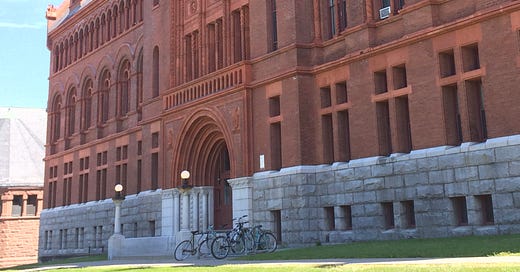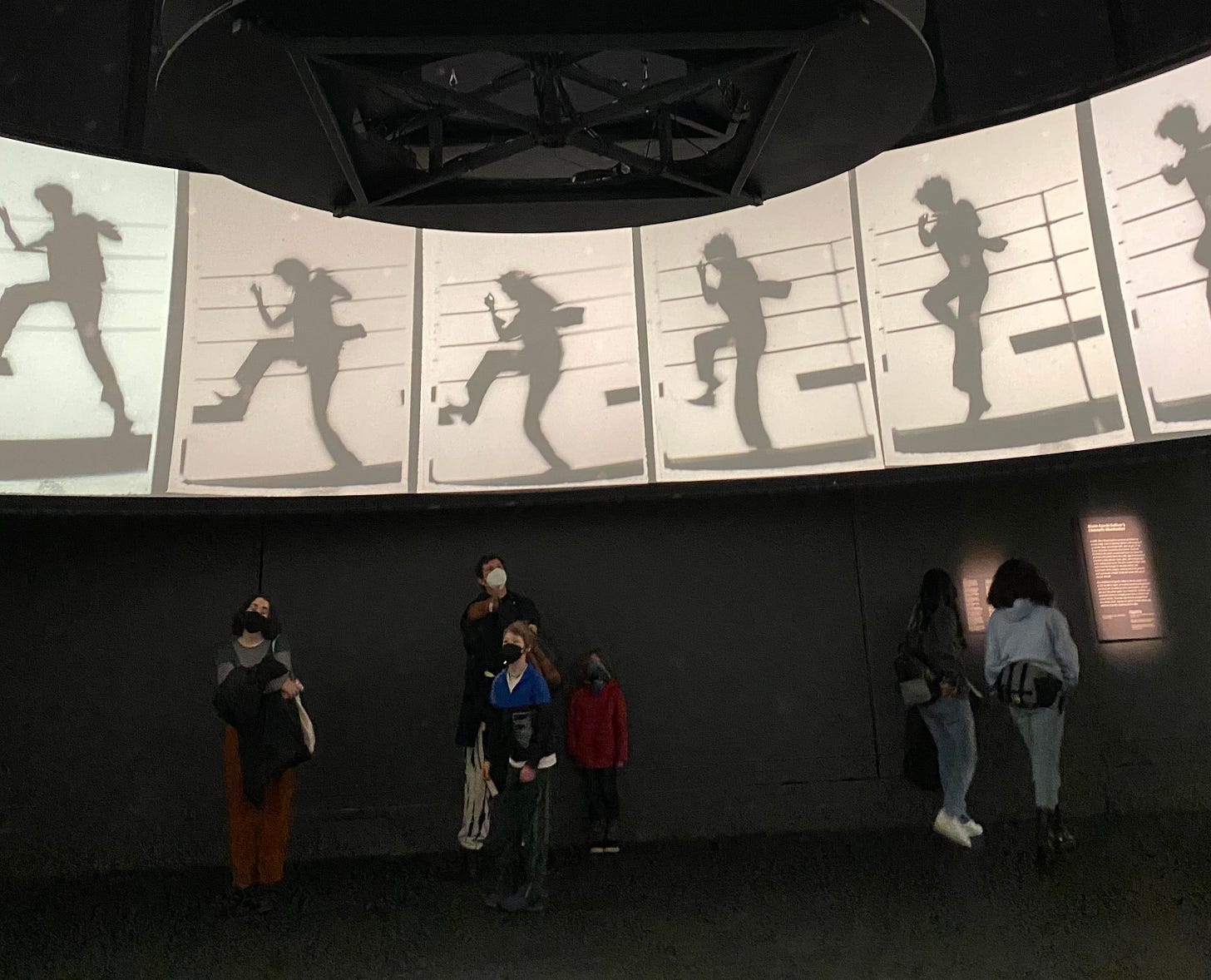When it was time for my perfectly average kid, Jonah, to apply to college, I wasn’t worried. Balancing his interest in large schools, his grades/SAT scores, and our bank account, I knew exactly what kind of college that he should apply to.
Of course, it wasn’t obvious how much we were going to pay for college, because the price of college is totally mysterious. Because of that uncertainty, we applied to 12 colleges hoping that one would be affordable. Even with that uncertainty, I had no trouble compiling a list flagship state colleges, we visited many of them, and then he applied. After acceptances arrived, we balanced price tags with ranking numbers and made a final decision.
Because my life is always fodder for my writing, I wrote about that process extensively on my blog and in more professional spaces. All those links in the above paragraphs go to my work. I even blogged about taking 5 college tours, in 5 states, in 5 days.
Sidenote: I thought about writing a travel/memoir, where I visited 100 colleges and went on all the tours. Maybe I would have attended some frat parties or something, too. I don’t know. It didn’t happen.
So, my second son is going to finish high school in three months. I basically have no clue what he’ll be doing then.
He’s got high functioning autism, so he would struggle with a typical liberal arts curriculum at a four-year college. He’s not reading and writing on grade level. And he has some quirks, so he might not blend into a tech program at the community college either. He might. He might not. I have no idea.
But assessing my son’s abilities is the easiest part of this job. The biggest problem is that I don’t even know what our options are.
High school counselors — for some reason, they’re not called guidance counselors anymore— do not provide information about alternatives to four year colleges. As I wrote last year, counselors are few in number; some states have 1 for every 600 students. They are trained to help kids with their social-emotional needs, not college and career planning. There are no incentives for them to provide information to kids about alternatives for four year programs, because their schools rankings are based on graduates’ attendance at 4-year colleges.
So that means that kids who are not going to attend a four-year college are out of luck. There’s no info. Parents have to figure it out on their own.
A friend’s son is on all honors classes, super smart kid, but he didn’t want to go to college. He loves cars, you see. His bedroom is covered with posters of Maseratis and Lamberginis. He wanted to be a car mechanic for those fancy cars.
When his high school couldn’t tell him what to do, his parents started googling information and learned that the local community college only trained kids to fix Toyotas and that a trade school about an hour away is the best place for him. Once he finishes his training, he’ll have a great high-paying job in a field that he loves. Too bad that his high school couldn’t guide him to the right place.
In another article, I wrote about a girl, who attended a four-year college, finished the degree, and racked up a whole lotta debt. But once she was done, she realized that she wasn't qualified for anything and that she wanted a very practical career. So, she enrolled in a local for-profit trade school. She wished she went there first, instead of wasting four years and tons of money at college.
Our fancy-pants high school sends about 86% of its graduates to a four-year college. While they don’t provide stats about how many of those kids dropout in their first semester, I suspect that those numbers are high. After all, the college dropout rate is huge, and also impacts kids from middle and upper income families.
If 14 percent of our high school’s graduates do not attend a four-year college and probably a very large number are not able to graduate from those colleges, then why don’t we have more information on alternatives? The school has a team of folks to help the kids who are going to a four year college, but I haven’t even gotten a webpage or a flyer of places that we should check out.
I’m almost finished with an article (it’s about mental health and schools). When I make the last edits next week, I won’t accept any writing gigs. Finding a place for Ian is going to be my full time job for two months. I’ll fill you in on the process as I go along.
LINKS
To help us keep our marbles this winter, Ian and Steve and I have been doing day trips on weekends. Last weekend, we went into NYC - I blogged about it, and posted pictures on Instagram.





You are so right....this is an enormous void and it's really hard to navigate. My kid has decided to take a few courses at a local community college, but the bigger economics questions about what kinds of work options will be available to her are something that stress me out entirely. I'm hoping that once she gets into the community college here, she'll get better advising. Her high school guidance has been somewhat minimal, a lot of emphasis on applying to college just for the practice of doing so....which isn't so helpful.
You're right--many HS counselors don't know much about community colleges--mainly because kids see them as a last resort in urban/suburban areas like yours. In rural areas, they're the first choice. You need to go talk to your local community college. We're used to dealing with folks with autism--our disabilities services folks across the country are first rate. Not sure which is closest to you in New Jersey--my friend Matt Reed is the dean at Brookfield CC in NJ--his email is deandad@gmail.com. He is an expert on community colleges as well as a nice guy.